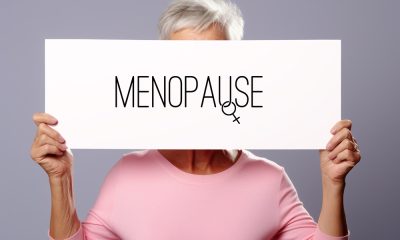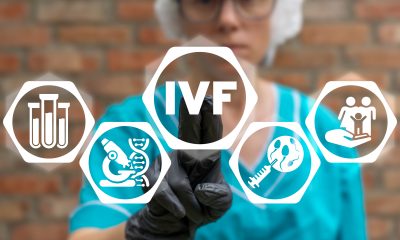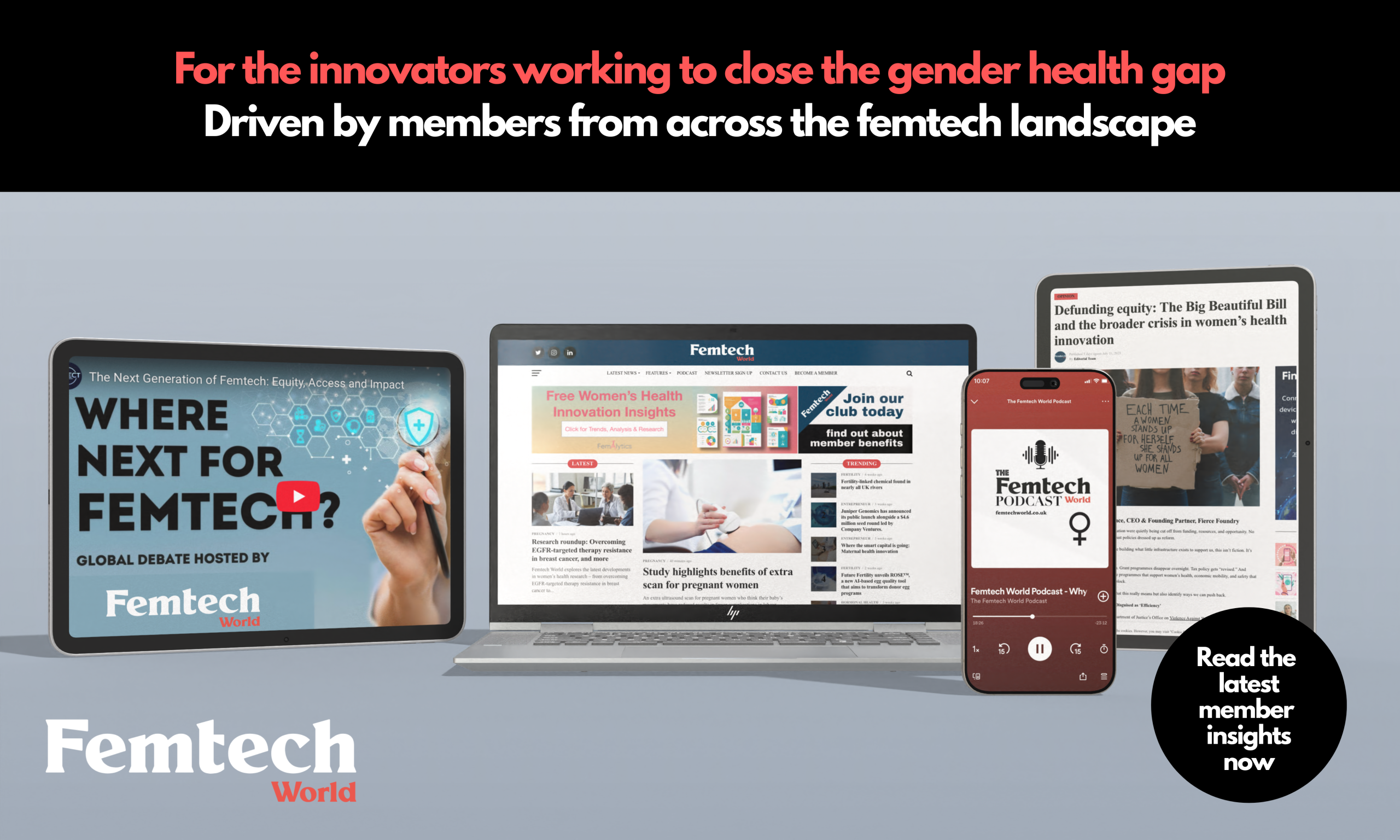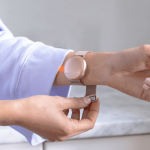Diagnosis
Women in UK with PCOS facing widespread failures in treatment, report finds

Women with polycystic ovarian syndrome face long waits for diagnosis and poor access to treatment, a parliamentary report has warned.
More than a third of women with PCOS waited over four years for a diagnosis, according to findings from the all-party parliamentary group.
After being diagnosed, 38 per cent said they were not offered any resources.
PCOS affects one in eight UK women of childbearing age.
The condition causes irregular periods, higher levels of the androgen hormone (which can trigger excess facial or body hair), and enlarged ovaries with fluid-filled sacs.
The report was based on patient surveys, oral evidence sessions and freedom of information requests to all 42 integrated care boards in England.
Only three per cent of patients felt supported by their healthcare providers. Almost a third reported feeling dismissed or not taken seriously.
Michelle Welsh is Labour MP for Sherwood Forest and chair of the APPG on PCOS.
She said: “PCOS affects one in eight women and those assigned female at birth, yet for too long it has been sidelined in policy, overlooked in funding, and misunderstood in practice.
“This report sets out a clear and urgent case for reform. If we are serious about improving women’s health, we must act now to break the cycle.”
The inquiry also revealed inequalities.
Women from Black and Asian backgrounds were up to 2.5 times more likely to be diagnosed with PCOS.
Those from ethnic minority groups more often had severe symptoms, including insulin resistance, a condition where the body struggles to use insulin properly.
Dr Itunu Johnson-Sogbetun, GP and founder of the Royal College of GPs’ women’s health special interest group, said the report reflected “what many of us with PCOS already know from lived experience: care is fragmented, diagnosis is delayed, and long-term risks are too often ignored.”
“PCOS is a multisystem condition, yet the NHS frequently treats it narrowly as a fertility or gynaecological issue.
“The report rightly highlights the postcode lottery of care, the lack of national pathways, and the absence of coordinated support for the metabolic, cardiovascular, and psychological complications that come with PCOS.”
The study also highlighted that the absence of Nice primary care guidance for PCOS had created a postcode lottery for patients, with variations in care across regions of the UK.
As a result, diagnosis often depends on individual clinician judgment, which can result in inconsistent and uncertain care.
Rachel Morman, chair of the charity Verity, said: “While this inquiry is about PCOS, it really is a barometer for how we value and prioritise women’s health across the entire system.
“For a condition affecting millions across the UK, with a significant cost burden to the NHS when not managed proactively in integrated care settings, this level of neglect is unacceptable.
“We welcome the report and its recommendations, and stand ready to work with the government to deliver the change that is so urgently needed.”
News
Researcher calls for improved education and access to period products in schools

Students are still struggling to access free period products in schools despite a government scheme designed to tackle period poverty, new research shows.
A study involving 77 teenagers in schools and colleges across Yorkshire found that while pupils welcomed the scheme, many faced barriers such as products being locked away, stored far from classrooms, or unsuitable for their menstrual flow.
The research was led by Dr Maria Tomlinson, a lecturer in public communication and gender from the School of Information, Journalism and Communication, who submitted written evidence to the Women and Equalities Committee alongside period equality organisation Irise International.
Focus groups revealed several challenges, with some pupils saying they struggled to concentrate during exams or experienced leaks because they were not allowed to bring products into exam rooms. Others avoided reusable options because they did not know how to use them.
The government’s free period products scheme is intended to ensure no pupils miss education because they cannot afford menstrual supplies. However, the findings suggest implementation issues are limiting its effectiveness.
Dr Tomlinson’s findings are published in her book The Menstrual Movement in the Media: Reducing Stigma and Tackling Social Inequalities.
She has worked with Irise International since 2020, and her research informed the UK Schools Toilet Policy Toolkit launched in 2024, which provides guidance on how to implement the period product scheme effectively.
Dr Tomlinson said: “Irise and I hope that our evidence will be discussed in parliament and will lead to improvements in menstrual education and access to period products in schools.
“Thanks to KE funding from the Faculty of Social Sciences, Irise, Belszki, and I will be training 10 schools to teach our menstrual education curriculum and implement the UK Schools Toilet Policy Toolkit.
“We have already seen the very positive impact of the curriculum on pupils’ knowledge, confidence, and wellbeing in one school and cannot wait to see its impact on 10 more schools.”
The evidence submitted to parliament included several proposed solutions.
One was a primary school menstrual health curriculum developed by feminist theatre performer Belszki, based on Dr Tomlinson’s findings. It allows pupils to learn about reusable products and test their absorbency using water.
Previous research by Dr Tomlinson titled Faith-Informed Menstrual Health Education was also cited.
It found that young women from ethnic minority and faith groups often feel most underserved by menstrual education.
Dr Tomlinson said: “Once we have gathered evidence of the impact of the curriculum and Toilet Toolkit in our ten schools, we will continue our dialogue with the government with the ultimate goal that all girls and young people with periods have access to the menstrual products, knowledge, and support that they need to achieve their potential.”
The Women and Equalities Committee called for evidence earlier this year on the period product scheme, menstrual education and related issues as part of a broader review of menstrual health provision.
News
Occupational therapy eases emotional strain of high-risk pregnancies, study finds

Occupational therapy can ease anxiety and emotional strain for women experiencing high-risk pregnancies, with cognitive-based techniques found to be most effective, new research has revealed.
Joint research from Edith Cowan University and the University of St Augustine for Health Sciences reviewed a range of psychosocial occupational therapy approaches and found that cognitive-based interventions had the strongest impact on managing perinatal anxiety, depression and stress.
The review examined several therapy types, including cognitive-based, counselling-based, sensory-based, emotion-based and integrated approaches.
Dr Thuy Tran is occupational therapy lecturer at Edith Cowan University’s School of Medical and Health Sciences.
The researcher said: “There is a lot of research evidence that reveals high-risk pregnancies result in increased levels of anxiety, stress, depression and a reduced quality of life.
“And while research has been done on how psychosocial occupational therapy could assist in those areas, there was no evidence which method was most effective.”
Around one in five women experience high-risk pregnancies requiring specialised monitoring and care.
Such pregnancies — which may involve conditions like pre-eclampsia, gestational diabetes or multiple births — often cause significant emotional distress, including fear, anxiety and uncertainty.
Occupational therapy helps people manage daily activities and life transitions through targeted interventions.
Psychosocial occupational therapy specifically addresses mental health and emotional wellbeing alongside functional support.
The researchers found that cognitive-based interventions were most effective for managing perinatal anxiety, depression and stress.
Counselling-based interventions had a moderate impact on anxiety, depression and quality of life, but a strong effect on reducing stress.
Sensory-based interventions appeared ineffective for anxiety, with limited evidence of impact on depression, stress or quality of life.
Lead author Dr Sabina Khan from the University of St Augustine for Health Sciences said the findings provide much-needed clarity about which approaches deliver the greatest benefit.
Khan said: “By identifying that cognitive-based and counselling-based interventions are the most effective in reducing anxiety, stress and depression, this research helps guide clinicians toward evidence-based practices that can meaningfully improve women’s wellbeing during a particularly vulnerable time.
“Women facing high-risk pregnancies frequently navigate fragmented systems.
“Embedding occupational therapy early helps close the gap between medical management and real-world function.”
Dr Tran said the research suggests practitioners should include cognitive-behavioural techniques in occupation-based sessions and place greater emphasis on emotional and cognitive assessment during the perinatal period.
The researcher said: “We need to have a holistic approach to working with clients to ensure that our strategies help them to function optimally.
“Whether this is in their new role as a mother, or their role as a mother to multiple children, or as a partner, or in their social role.”
The role of occupational therapists in women’s health is steadily growing in Australia.
Most practitioners work in private practice and are recognised as mental health care providers, making services accessible through mental health care plans, enhanced primary care plans or self-referral.
While some hospitals already employ occupational therapists in this field, there are calls for this to become standard care nationwide.
Dr Tran urged pregnant women, particularly those experiencing high-risk pregnancies, to seek intervention early.
Dr Tran said: “Pregnancy is such an intense phase, with women experiencing significant emotional, psychological and physical changes in their bodies, all while their social and work roles are also transitioning.
“A lot of focus is placed on the baby, but we don’t really talk about the emotional wellbeing of the mother and the transition from one role to the next.
“Having an occupational therapist can provide you with strategies to help that transition.”
News
Patients take legal action to save frozen embryos after admin error

At least 15 fertility patients are taking legal action to prevent their frozen embryos being destroyed after administrative errors left them at risk of losing their chance to have children.
The group includes people with cancer and fertility problems who froze gametes (eggs and sperm) or embryos to improve their chances of conceiving later on, but were told they had not renewed consent in time due to clinic mistakes.
Some only discovered the problem when they approached clinics about plans to start a family — for some, their only hope of conceiving naturally.
Others were contacted by clinics after internal audits revealed the errors and were told they could only extend storage through a court order.
The errors relate to two legal changes: one in 2022 that extended the maximum storage period for embryos and gametes from 10 to 55 years for personal use, provided consent is renewed every 10 years; and a temporary two-year extension introduced during the coronavirus pandemic in 2020.
In several cases, clinics failed to contact patients about renewing consent, recorded incorrect expiry dates or medical details, or did not follow up on reminders.
Some patients missed emails that did not make the urgency clear, while others continued to make annual storage payments, assuming everything was in order.
James Lawford Davies, a partner at LDMH Partners representing the group, said that although the fertility law change had been “positive and well intentioned”, both clinics and patients had found the new rules “difficult to understand and apply.”
He said: “The cases before the court have arisen as a result of errors, oversights and misunderstandings surrounding the new rules.
“The applications are hugely significant for all the patients involved and, for many, this represents their only chance of having their own genetic child.
“We hope that, going forward, the guidance and process for storage consents can be clarified and simplified for patients and clinics alike.”
Appearing in the high court this week, Emma Sutton KC, representing the applicants, said they felt “emotional” and “distressed” as they “would have given their consent had the process been put into effect in the way it should have.”
She added that the patients had been left “in limbo” for nearly a year, with “time of the essence” for some couples because of age or health problems.
She argued that destroying the embryos would conflict with article 8 of the Human Rights Act, which gives people the right to a family life, and said allowing extensions “would not undermine a fundamental objective of the statutory scheme – namely the requirement for consent.”
Barristers representing the Human Fertilisation and Embryology Authority (HFEA) and the Department of Health and Social Care supported case-by-case consideration and proposed that, where clinics failed to notify people, patients should be given six months to arrange consent renewal.
Jeremy Hyam KC, for the Department of Health and Social Care, expressed concern that the law’s focus on effective consent could be undermined if there were a “free for all”, leading clinics to adopt a “default position of indefinite storage” out of fear of liability for miscommunication.
He said cases in which patients had been notified but made errors — such as failing to open emails, update addresses or log into online portals — should not automatically be granted extensions.
Ravi Mehta, for the HFEA, expressed the regulator’s “sympathy” for the patients and praised clinics for their “candour” in admitting mistakes.
He noted that under UK fertility law, clinics — not patients — are responsible for securing consent.
“[The patient’s] wishes now are sufficient – no one is asking for open-ended relief, that takes consent now as opening the door to everything.”
Mrs Justice Morgan, who heard the case, will deliver a written judgment in the coming months.

 News2 weeks ago
News2 weeks agoDozens of women report suffering painful burns after using Always sanitary towels

 Ageing4 weeks ago
Ageing4 weeks agoFDA plans to revise black box warning on menopause hormone therapies

 News2 weeks ago
News2 weeks agoWomen’s health innovations recognised in TIME’s Best Inventions 2025

 News3 weeks ago
News3 weeks agoAI-powered women’s health companion Nexus launches in UK

 Diagnosis4 weeks ago
Diagnosis4 weeks agoScientists turn human skin cells into eggs in IVF breakthrough

 Wellness2 weeks ago
Wellness2 weeks agoCutting through the noise in femtech – key takeaways from Women’s Health Week 2025

 Adolescent health3 weeks ago
Adolescent health3 weeks agoMenstrual cycle affects women’s reaction time, study finds

 News4 weeks ago
News4 weeks agoDaily pill could delay menopause ‘by years,’ study finds
































4 Comments